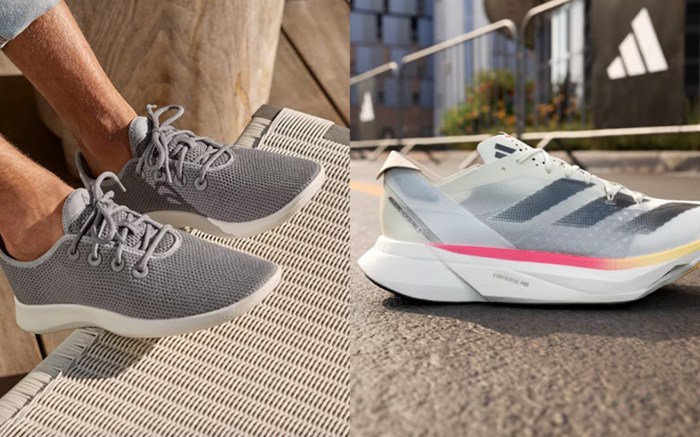Sustainability was the hot topic during the inaugural Global Footwear Future Coalition (GFCC), a one-day symposium with speakers and panelists from brands including Clarks, Dune London and Vivobarefoot.
Footwear manufacturers, designers, and academics flocked to Havas Village in King’s Cross on Oct. 9 to attend panel discussions and workshop sessions that looked at the industry from social, cultural, environmental, and economic angles. The GFCC was founded in January by author and designer Darla Gilroy, who is helming the effort with fellow designer Liz Ciokajlo and other industry players.
Watch on FN
“By having open conversations and endeavoring to reach consensus, GFFC believes that we can draw a line of sight from where we are today to where we collectively want to get to in the future,” said Gilroy in her opening address at the symposium.

Daniel Rubin, founder of Dune London, noted in his keynote address that 22 billion pairs of shoes go into landfill each year. “Unfortunately, that footwear is going to be around for many millennia to come,” he said. Rubin added that about 90 percent of discarded footwear is composed of shoes that have only been worn for one year — a direct result of consumer demand for affordable, fast fashion.
Other speakers discussed sustainability in the footwear supply chain.
Those on the panel included Vivobarefoot co-founder Asher Clark; Jamie Hall, co-founder of Pentatonic, a business that helps brands transition into circular practices; Jack Millington, founder of sustainable tannery Billy Tannery; and Susan Postlethwaite, director of Manchester Fashion Institute’s Robotics Living Lab.
The group talked about greener ways of producing shoes, from using regenerative and low-carbon materials — such as vegetable tanned pieces and skins from goats and deer that would otherwise be thrown away.

When it comes to disassembling and recycling old shoes, robotics could play a key role moving forward.
“We’re trying to put a bid together with King’s College and their medical robotics team,” said Postlethwaite.
Another panel, titled “Foot Work: What Your Shoes Tell You About Globalization,” looked at shifting consumer demands that footwear businesses and manufacturers are facing, including grappling with greenwashing. Eighty one percent of consumers don’t trust sustainability claims, according to Tansy Hoskins, author of “Foot Work: What Your Shoes Tell You About Globalisation.”
Jen Keane, CEO of sustainable textile manufacturer Modern Synthesis, addressed the slow adoption of innovative materials.
“To produce to the industry’s scale, startups need certain amounts of financial commitments. The industry isn’t used to buying years in advance, or to agreements that say they’re willing to commit financially to taking these quantities,” she explained.
Gilroy said she hoped the symposium would be the first step to, “identifying the incremental steps we want to take to make real tangible, measurable – and importantly – scalable change.”
After the panels, workshop sessions looked at topics ranging from popular culture’s influence on footwear to how businesses can transform their infrastructure.

